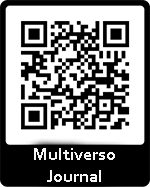Socio-cultural teacher training strategy and the evaluative context of learning in Ecuadorian educational institutions
DOI:
https://doi.org/10.46502/issn.2792-3681/2023.4.9Keywords:
teacher training strategy, sociocultural theory, learning assessment context, educational institutions in Ecuador, critical theory of society.Abstract
This article presents the results of a study on "Strategies for sociocultural teacher training and the evaluative context of learning. The objective of the research was to generate a reflection on the relevance of developing this type of pedagogical tools based on the theoretical approaches of Lev Vygotsky and the educational realities in basic education in Ecuadorian institutions, particularly in Machala. Likewise, among the theoretical references there is Horkheimer's critical theory, seen as an alternative to the phenomenological-hermeneutic and positivist tradition in the curricular field. From the methodological point of view, and considering the nature of the problem, the research was developed under a mixed approach with elements of hermeneutics and quantitative analysis, the type of research is basic and the non-experimental design is descriptive-propositive. The results highlight the need for teachers to diversify their strategies to contextualize the evaluation of learning, corroborating the relevance of designing a proposal that includes sociocultural training strategies for quality teaching, not only in Ecuador, but also in other Latin American countries.
References
Ardiles, M. (2009). Formación docente, el otro y las huellas para anticipar la enseñanza y el aprendizaje. Dialogando con Zambrano, desde Meirieu. Educere, 13(45), 305-310.
Asamblea Nacional. (2011). Ley Orgánica de Educación Intercultural. Quito, Ecuador.
Baque, G., & Portilla, G. (2021). El aprendizaje significativo como estrategia didáctica para la enseñanza–aprendizaje. Polo del conocimiento, 6(5), 75-86.
Bolo, K., Scattolon, L., Guevara, V., & Peceros, K. (2021). La educación y la escuela de Frankfurt: Una perspectiva epistemológica sobre la teoría crítica de la sociedad. Phainomenon, 20(2), 223-242.
Cifuentes, J., Moreno, I., & Camargo, A. (2017). Reflexión de la teoría crítica, la pedagogía revolucionaria y la educación liberadora. Derecho y Realidad, 15(29), 1-13.
Escudero, J. (2017). La formación continua del profesorado de la educación obligatoria en el contexto español. Profesorado. Revista de Currículum y Formación de Profesorado, 21(3), 1-20.
Espinoza, E. (2022). La evaluación de los aprendizajes. Revista Conrado, 18(85), 120-127.
Estévez, H. (2018). La evaluación de los aprendizajes en la formación integral del estudiantado de educación básica y bachillerato. Retos de la Ciencia, 2(3), 55-64.
Gallardo, E. (2017). Metodología de la Investigación. Universidad Continental. https://repositorio.continental.edu.pe/bitstream/20.500.12394/4278/1/DO_UC_EG_MAI_UC0584_2018.pdf.
Gómez, L. (2017). Desarrollo Cognitivo y Educación Formal: Análisis a partir de la Propuesta de L.S. Vygotsky. Universitas Philosophica, 34(69), 53-75.
González, C., Gil, R., Collazos, C., & González, J. (2021). Análisis de las titulaciones formales e informales en Iberoamérica de UX: desafíos para la formación online. Campus Virtuales, 10(1), 141-151.
Herrán, G. (2019). Algunos fundamentos sobre la formación continua del profesorado desde el enfoque radical e inclusivo. Redipe, 8(2), 29-57.
Huayhua, M., Avila, C., Vargas, Y., & Buitron, C. (2021). La retroalimentación formativa una práctica eficaz en tiempos de pandemia. Horizontes, 5(21), 1480-1490.
Hurtado, P., Tamez, R., & Lozano, A. (2017). Características que presentan los estudiantes con estilos de aprendizaje diferentes en ambientes de aprendizaje colaborativo. Tendencias Pedagógicas, 191-206.
Hurtado, J. (2018). Investigación holística. http://investigacionholistica.blogspot.com/2008/02/la-investigacin-proyectiva.html.
Jiménez, M., & Alfaro, J. (2020). La Puesta al Día de la Evaluación de los Aprendizajes en Chile. Una aproximación a la nueva Política de Evaluación. Revista Latinoamericana de Educación Comparada, 11(18), 126-137.
León, R., & Barrera, K. (2022). Enfoques y estilos de aprendizaje en estudiantes de Psicología de una universidad pública en México. Revista Virtual Universidad Católica del Norte, 65, 102-136.
Lozada, J. (2014). Investigación Aplicada. Definición, Propiedad Intelectual e Industria. Cienciamérica, 3, 34-39.
Medina, M., Navarro, M., & Santiago, A. (2020). La importancia de la formación inicial docente y su gestión para el acceso al mundo laboral. International Journal of New Education, 6, 1-14.
Schwartzman, G., Roni, C., Berk, M., Delorenzi, E., Sánchez, M., & Eder, M. (2021). Evaluación Remota de Aprendizajes en la Universidad: decisiones docentes para encarar un nuevo desafío. RIED, 24(2), 67-85.
Vygotsky, L. (1984). Aprendizaje y desarrollo intelectual en la edad escolar. Journal for the Study of Education and Development, 27(28), 105-116.
Published
How to Cite
Issue
Section
License
Copyright (c) 2023 Plutarco Severo Ordóñez-Barberán

This work is licensed under a Creative Commons Attribution 4.0 International License.
The authors who publish in this journal agree to the following terms:
The authors retain copyright and guarantee the journal the right to be the first publication where the article is presented, which is published under a Creative Commons Attribution License, which allows others to share the work prior to acknowledgment of the authorship of the article. work and initial publication in this journal.
Authors may separately enter into additional agreements for non-exclusive distribution of the version of the work published in the journal (for example, placing it in an institutional repository or publishing it in a book), with an acknowledgment of its initial publication in this journal.



















